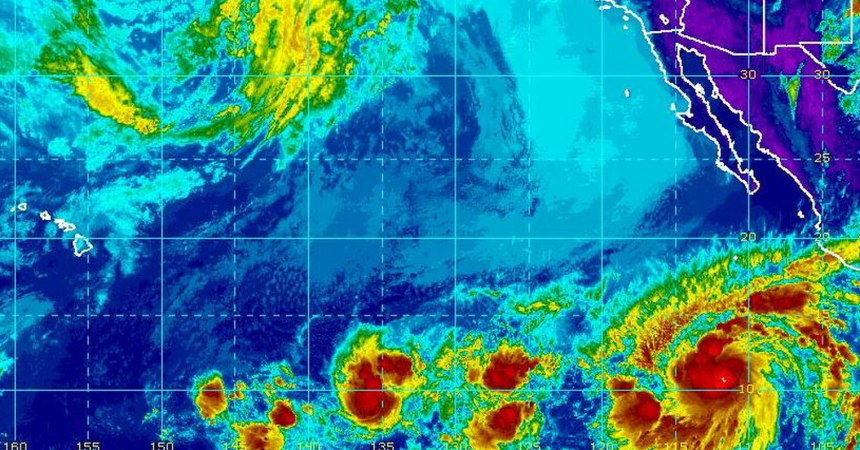
Hurricane Season Expected to be ‘Below Normal’
By Giulia Marsico
Outlook writer
Experts are predicting a below-normal hurricane season but that doesn’t mean we shouldn’t prepare for the worst.
The National Oceanic and Atmosphere Administration (NOAA) recently issued a press release advising the 2015 Atlantic hurricane season will be below normal but devastation from powerful storms is still a possibility.
“Even though the forecasting said we are not expecting as many storms, it doesn’t mean that we are off the hook,” said Chris Vaccaro, a spokesman for the National Weather Service from Washington D.C.
The 2015 hurricane season begins June 1 and runs until Nov. 30, but newly named Tropical Storm Andres is the first storm of 2015 – representing an early start to the season.
Andres is expected to strengthen to a hurricane and move toward the Mexican coast by Friday. The conditions of the tropical storm consist of warm water and low shear, which will allow for a steady strengthening during the next couple days, said NOAA’s forecast discussion website.
Volunteer Florida, “an organization that fosters volunteerism and strengthens Florida’s communities,” is making preparations for this year’s hurricane season.
“Volunteer Florida has recently completed the Florida Governor’s Hurricane Conference and we are participating in two training workshops to help managers prepare for disasters,” said Ken Skalitzky, emergency management director at Volunteer Florida who recently re-located from Atlanta to Tallahassee. “We have also opened up our call centers and we are accepting offers and donations.”
The Florida Department of Health recommends building an emergency kit that includes medication supplies for those who are on prescriptions.
“Talk with your health care provider and pharmacist about receiving emergency medication supplies,” said Mara Burger, press secretary for the Florida Department of Health. “If you or someone in your family requires daily medical assistance like routine nursing, help with medication, oxygen therapy or electricity for life-supporting medical equipment, be sure to pre-register for a special needs shelter.”
The peak of hurricane season typically starts mid-August until late October, which gives people plenty of time now to begin making emergency preparations.
“We need to take the time now to make sure we are prepared,” Vaccaro said.
In the event of a major storm, make sure you and your family have:
* One gallon of water per person for three days.
* Non-perishable foods.
* A radio and a flashlight with extra batteries.
*A copy of important documents stored in a zip lock bag.
*A first aid kit and medicine.
“We can hope for the best but we want to prepare for the worst,” Vaccaro said. “We are hoping these below-normal hurricanes will be short-lived and will stay off the coast.”








